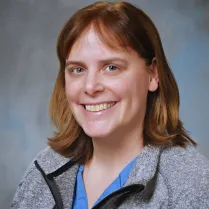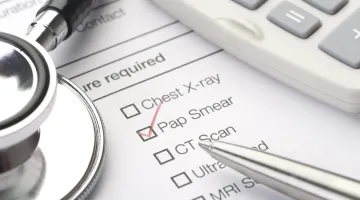Perinatal Behavioral Health: Building a Community
Author

Julie Paul, PMHNP-BC, CNM
So much of our work in healthcare centers on community. Caregivers work to understand the health needs of the community, and collaborate with our medical colleagues in all areas of medicine to treat illness, or prevent it entirely.
This is especially true for midwives. Community is what helped build my foundation. It helped me integrate and feel part of something bigger, and that I belonged.
When I moved to Scituate in 2006, I didn’t know a soul. Thankfully, my midwife colleagues stepped up to provide me with a new community. And I got to understand this wonderful region. Gradually, I started to make my own connections in the South Shore community.
Once I did, I started to realize that not everyone feels as if they belong. I saw the lack of resources in the community for women with peripartum mood disorders and substance use disorders. I would often have to send these women to an emergency room in Boston or Rhode Island for help because there are very few local providers comfortable caring for (or prescribing medication to) pregnant or lactating women with mental health issues or substance use disorders.
This is hard for women, because what they need is to remain in their own community with their family and friends, with support from caregivers trained to balance a mother’s needs with those of her baby.
That is when I decided to go back to school and obtain my psychiatric-mental health nurse practitioner (PMHNP) certification. The unique combination of psychiatric training and midwifery has been incredibly useful when helping women with birth trauma, depression, anxiety, suicidal ideation, PTSD, and/or addiction.
Now, as part of the Grayken Center for Treatment at South Shore Health, we’re building a perinatal behavioral health program that gives women on the South Shore a community. A community that is nurturing. A community that is free from judgment. A community that has the resources in place to support mothers during pregnancy and beyond.
It’s so important to have a community because depression, anxiety, and addiction is isolating.
Often, individuals with these conditions are isolated from family, friends, employers, and communities because of their behaviors and fears. Many patients isolate themselves due to the stigma around addiction and mental health challenges, making women feel self-loathing, insecurity, and depression. One of the strongest predictors of successful treatment is connection. Helping women feel connected and valued enough to connect is my goal, but that takes time and patience.
For example, I had a patient who was 29 weeks pregnant who came to see me. She was terrified of giving birth. She thought the baby was going to “rip her to shreds,” whether she had a vaginal delivery or a C-section.
I met with her weekly until she delivered. We worked together to give her back some control. First, we worked on her anxiety. Then, we were able to talk about the birth process and what to expect. She ended up delivering via C-section, but felt that she did everything she could to manage her anxiety around giving birth. I saw her again, shortly after her child’s first birthday. She loves her baby and she feels “back to her normal self.”
As of October 2020, the perinatal behavioral health program has had 486 new patient intakes and 2,531 follow-up appointments. When you factor in our patients’ partners, children, and families, this program has touched thousands of lives.
I encourage any woman reading this who is pregnant, or is planning to be, who is struggling with depression, anxiety, trauma, or substance use disorder, to ask for help.
Your primary care provider, OB/GYN, or midwife can all connect you to the community we’re building here at South Shore Health.
If you prefer to speak with our team directly, you can call 781-624-5065 and leave a message for our perinatal behavioral health team. We will call you back as soon as possible to discuss your needs and connect you to our growing community of mothers.
Learn more about the Grayken Center for Treatment at South Shore Health.
Author

Julie Paul, PMHNP-BC, CNM






